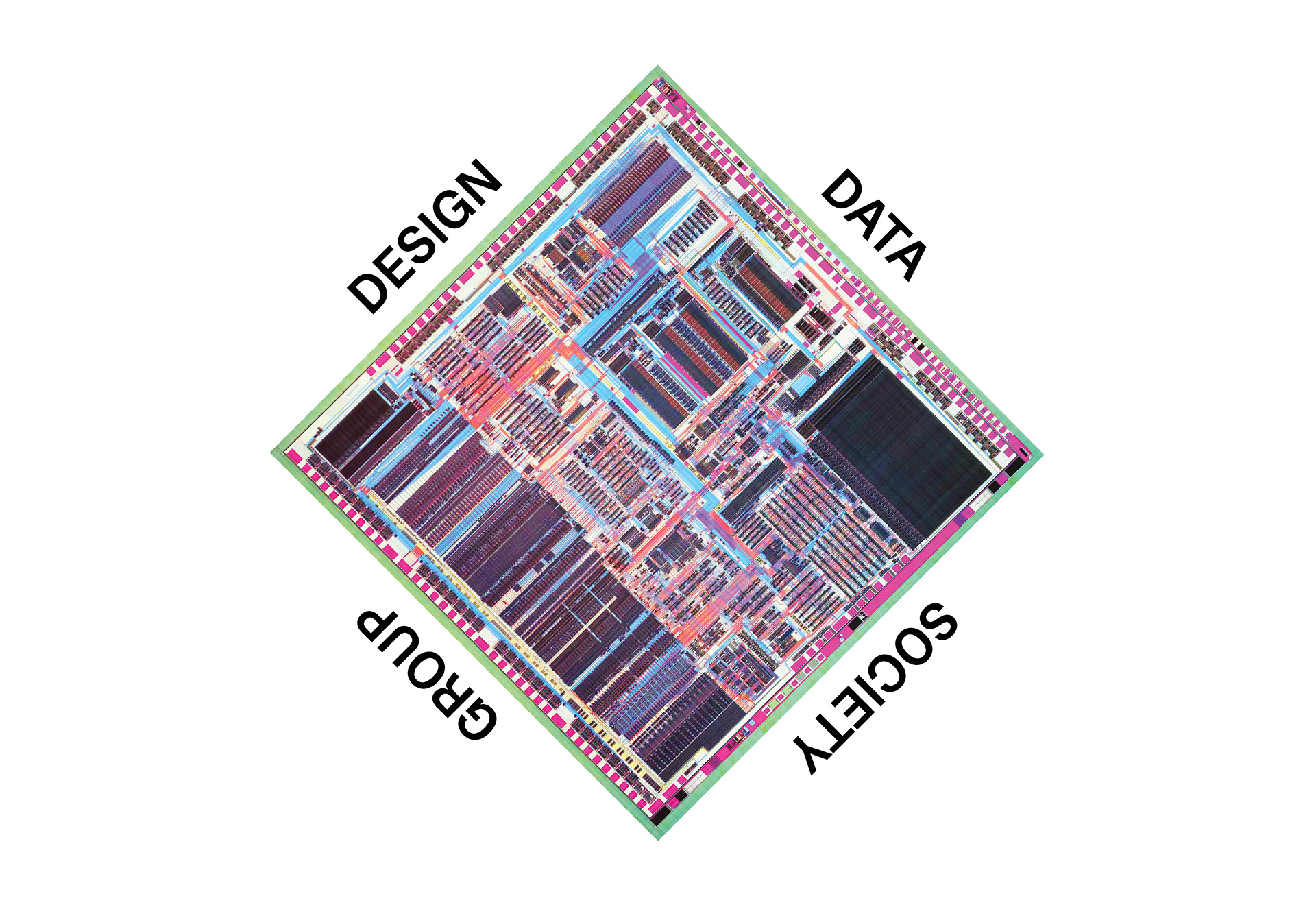Design, Data and Society
Design, Data, and Society Group critically explores the technological conditions under which architecture in the age of global digital infrastructures emerges. Data has operationalised our knowledge about space and time, people, materials, buildings, and cities, and has become a medium of integration - converging models, media, and methods from different disciplines and scales. What does it mean to design in a society that seeks a balance between the datafication of all areas of life, and urgent societal issues?

Image: Intel Corporation, 1985, Microprocessor 229.000 transistors, in “Information Art: Diagramming Microchips”, curated by Cara McCarty, Museum of Modern Art, New York, 1990, image source: http://www.moma.org.
Focus and approach
The Design, Data, and Society (DDS) education program enhances students’ abilities to address societal and ecological challenges. It equips students with skills and knowledge in design data literacy, connecting their design choices to social and environmental impacts, and heightening their understanding of broader techno-cultural processes. DDS teaches theoretical as well as practical skills in three primary areas:
- CULTURE AND ETHICS, enabling students to re-think and re-evaluate established cultural techniques in architecture - reading, writing, modelling, drawing, seeing, searching from data analytics and AI perspectives.
- ARCHITECTURAL QUALITIES, enabling students to connect data and AI to designs that elevate the Qualities of Architecture: sensory, spatial, visual, experiential, cultural, organisational, aesthetic, material, climate, and comfort.
- RESOURCES AND TECHNOLOGIES, enabling students to apply mixed-methods techniques to evaluate, apply and derive meaning from societal and resources data in order to inform design processes and challenges.
Programme
MSc 1 Studio: 'The Brain Center' (available from Sep 2024)
From September 2024, DDS group will offer a MSc 1 Studio, focusing on a medium-sized building that represents new architectures for health and wellbeing in the data society. It will be located at a world class intellectual centre that spearheads new modes for thinking, living, and thriving in the age of technology. The aim of the studio is to inspire new ways to imagine buildings in the digital age, and also provide a practical and implementable solution given the context. The project will be rooted in data as a tool for designing, explaining, and measuring buildings and their impact.
Programme MSc 1 fall semester 2024 (pdf)
MSc 2 Studio: 'Inhabiting Data'
This exploratory MSc 2 Design and Research studio challenges students to rethink and re-evaluate cultural techniques and architectural design methodologies from data analytics and AI perspectives, involving experimental design assignments that address various social and ecological challenges. Through the design and creative visualisation of small-scale conceptual design projects, students will explore the relationships between people, actions, objects, and spaces in the data society. They will then connect these to broader cultural, technological and infrastructural networks, aiming to promote positive change through architectural design. The course aims to develop new knowledge perspectives on design information, representation, spatial perception, aesthetics, subjectivity, design ethics, and the role of the architect in the age of data and AI.
Programme MSc 2 spring semester 2024 (pdf)
MSc 3/4 Graduation
Although DDS group is currently not running a specific graduation studio, our interdisciplinary teaching staff is open to supervising MSc 3/4 Explore Lab students who are interested in exploring topics related to media archaeology, data analysis and visualisation, and AI, and how they relate to architectural design theory and practice. Additionally, DDS group actively collaborates with the AiDAPT Lab in research and education, at the intersection of architecture and computer science.
Staff
Prof. dr. Georg Vrachliotis, dr. Angela Rout, dr. Seyran Khademi, dr. Dennis Pohl, ir. Marija Mateljan.
Additional information
Additional information about the projects and student work can be found here.